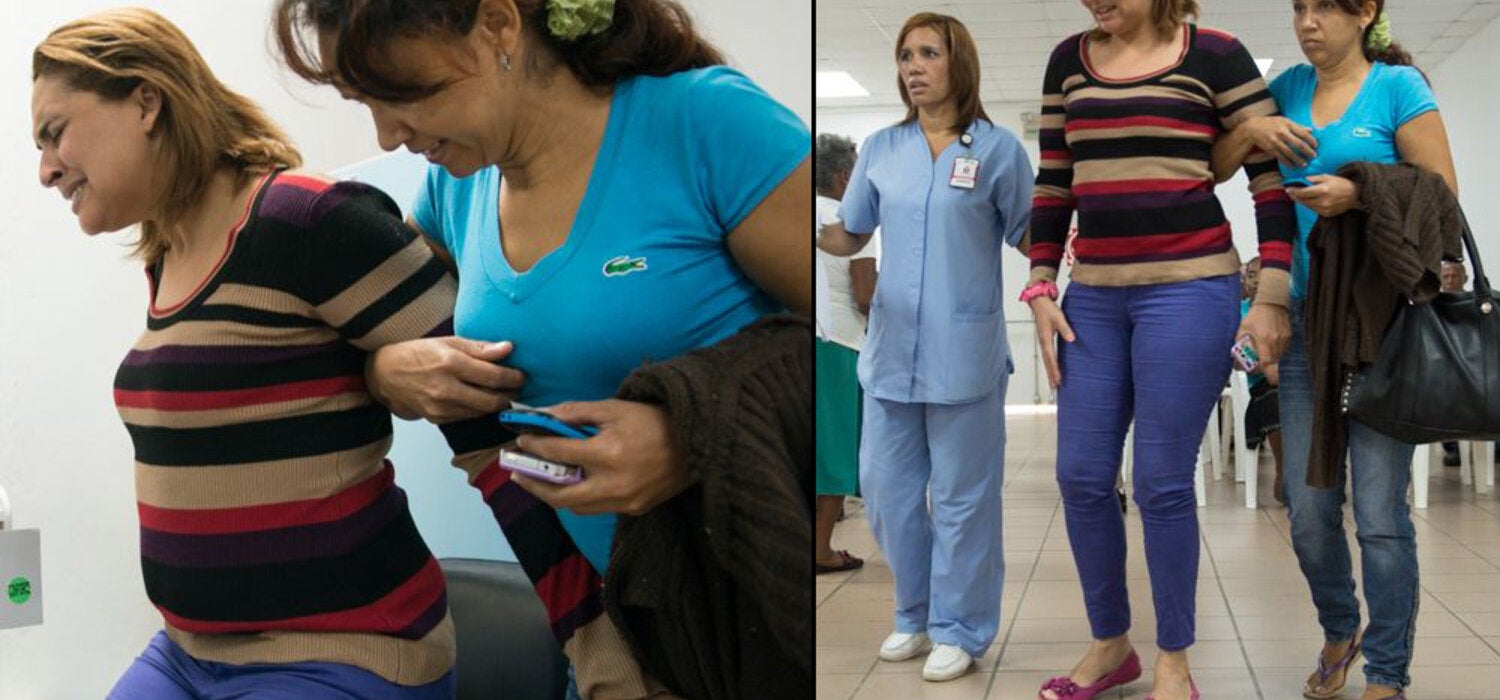-
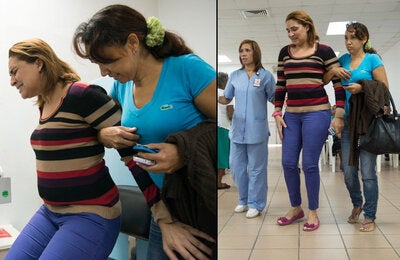
Hunched over: A woman arrives at a health center unable to stand straight and having difficulty walking because of back and joint pain caused by the chikungunya virus. Symptoms of the disease usually appear from three to seven days after a mosquito bite.
-
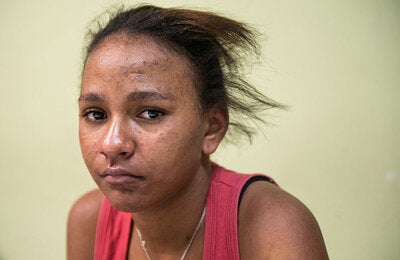
Skin lesions or rash: After her fever and joint pain diminished, this teenager came to the clinic to have her skin checked. In about 50% of cases, chikungunya causes a rash on the face, neck, back, abdomen, arms, legs, palms of the hand or feet.
-
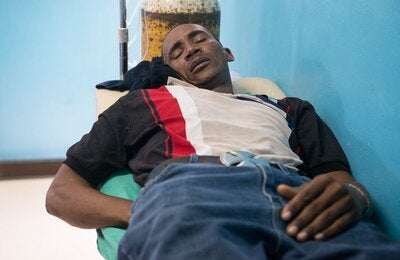
Rest, hydration and acetaminophen: There is no specific treatment or vaccine for chikungunya. Patients are recommended to get lots of rest, drink lots of fluids, and take acetaminophen to reduce fever and pain.
-
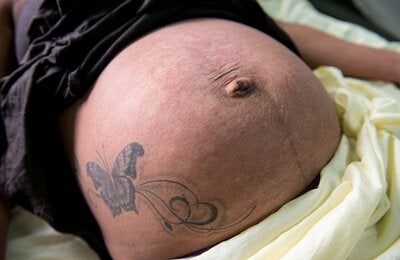
Pregnant women at risk: A mother-to-be with chikungunya waits for a doctor to examine her. Pregnant women require special care if they become ill with chikungunya in the first weeks of pregnancy or the last week before delivery. Bites can be prevented by using mosquito nets and insect repellent and by wearing pants and long sleeves.
-
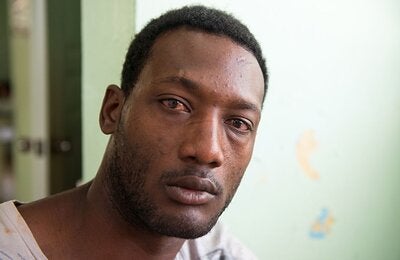
Red eyes: In some people, chikungunya causes conjunctivitis. This man's red eyes, rash and high fever are all typical symptoms of the disease.
-
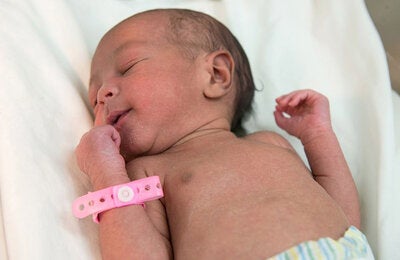
Infected at birth: This newborn girl contracted chikungunya from her mother during childbirth. Such babies require close follow-up and should not stop breastfeeding.
-
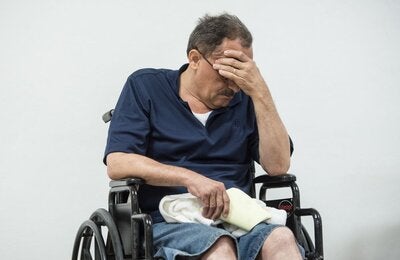
Debilitated: This man was so weakened by chikungunya that he needed a wheelchair. Adults over 65 and people with pre-existing conditions are at higher risk of serious illness and require closer follow-up.
-
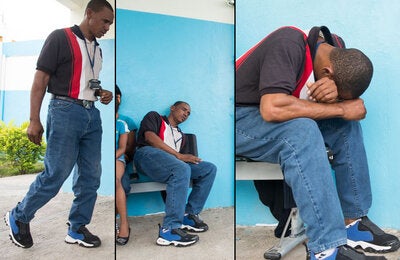
Immobilized: A normally robust young man arrives at the hospital barely able to move, with pain in his back and joints, plus a high fever.
-
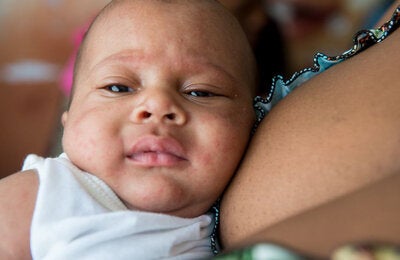
Crying in pain: A baby bitten by an infected Aedes aegypti mosquito cries from pain and discomfort. Children under 1 are considered a high-risk group.
-
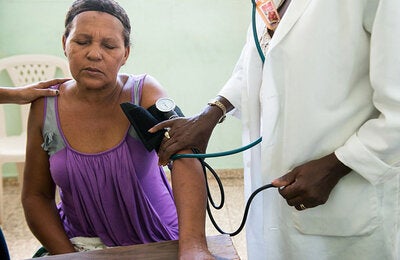
Joint pain: Chikungunya doesn't discriminate by age or sex. Joint pain is another major symptom of the illness, whose acute phase generally lasts about five days and includes severe headache and general malaise.
-
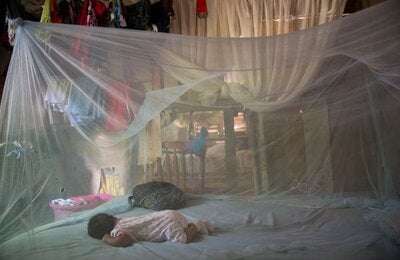
Barrier against mosquitoes: A baby sleeps under a mosquito net, protected against mosquitoes that can transmit the chikungunya virus. People infected with chikungunya should also sleep under mosquito nets to prevent transmission of the virus to mosquitoes.
-
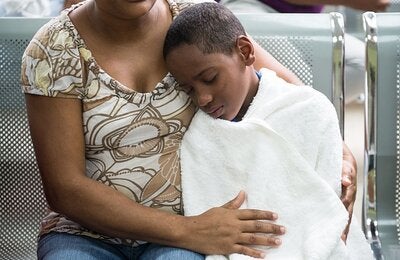
Fever and difficulty walking: A boy waits in the emergency room at the Juan Pablo Pina Hospital in San Cristobal, the Dominican Republic. High fever—102° or above—is one of chikungunya's most common symptoms.
-
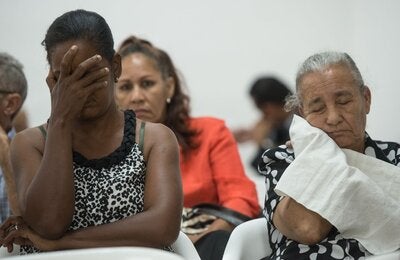
Pain that doesn't go away: Chikungunya is only rarely fatal, but in some people, the joint pain it causes can persist for months or even years. Older adults are most susceptible to long-term symptoms.
-

Eliminate breeding sites: The best way to prevent and control chikungunya is by regularly emptying or cleaning containers that hold water and can serve as breeding sites for Aedes aegypti, the mosquito that transmits the virus.
-
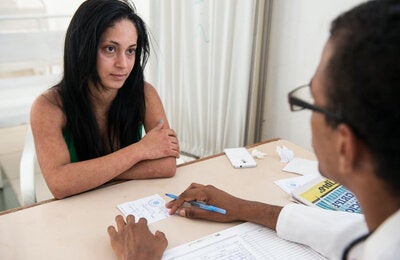
Intense itching: Another young woman visits the clinic with intense itching from a rash over much of her body. To relieve itching, doctors recommend bathing and using a zinc oxide lotion or a moisturizer with aloe vera, menthol or camphor.

